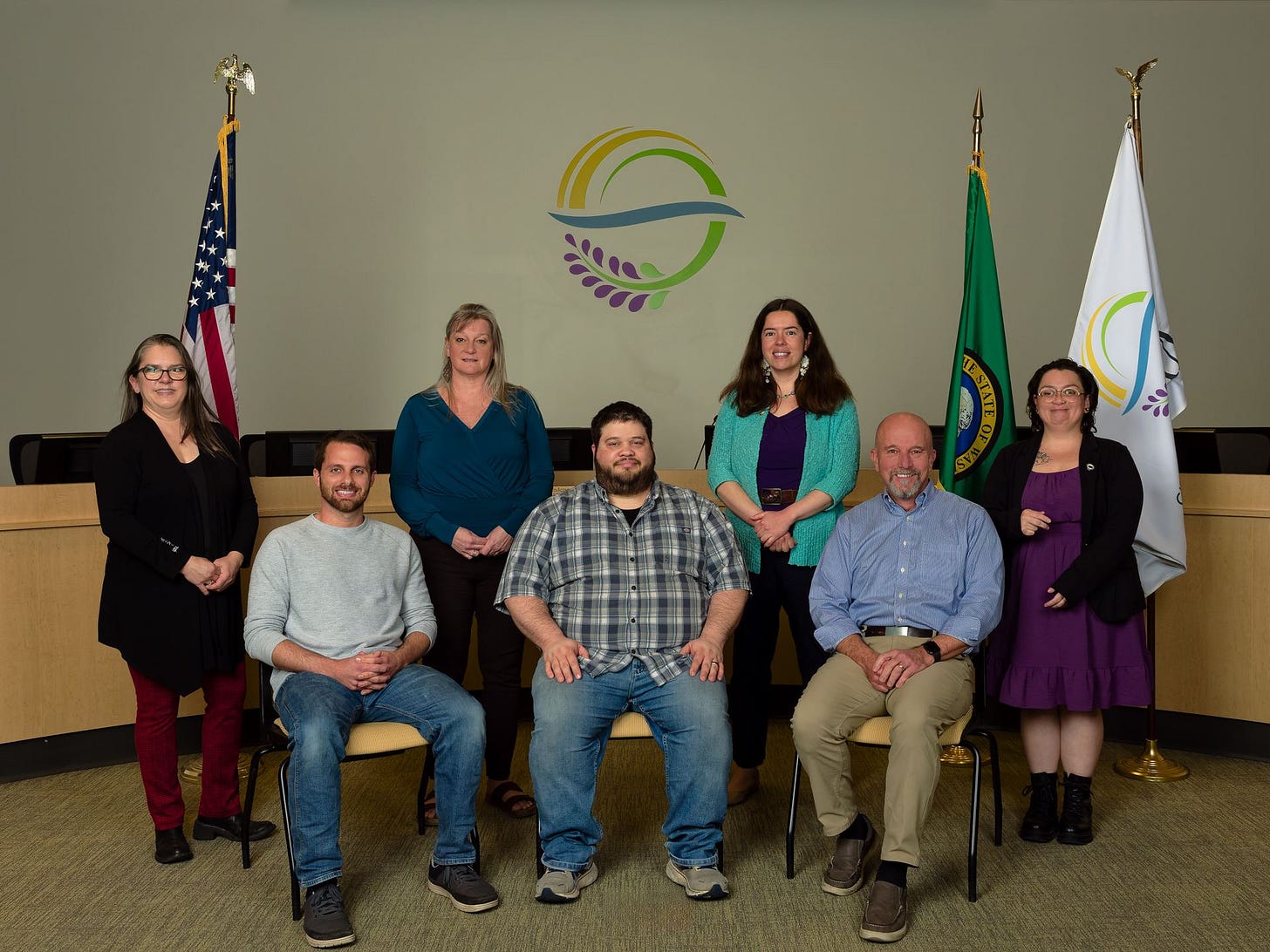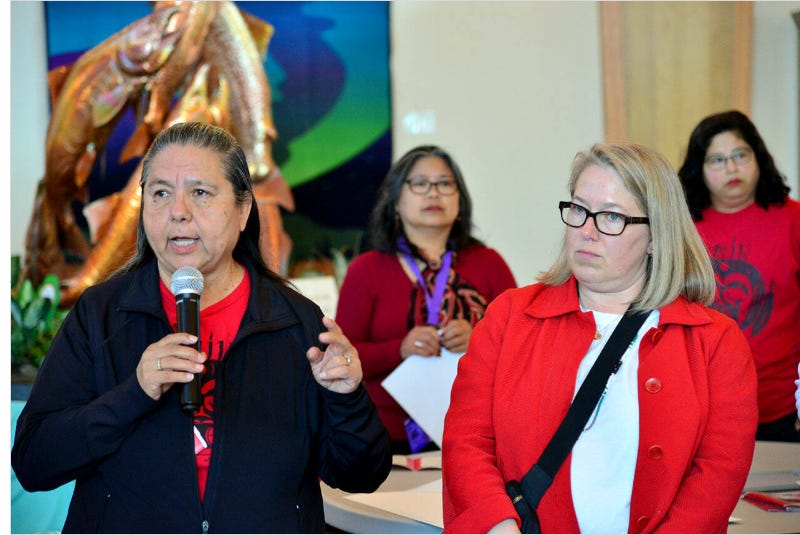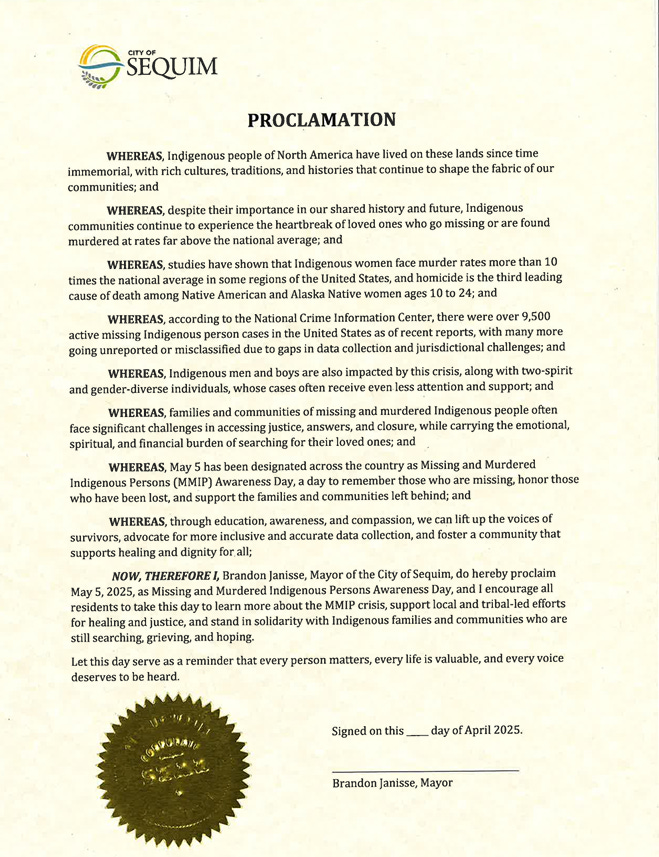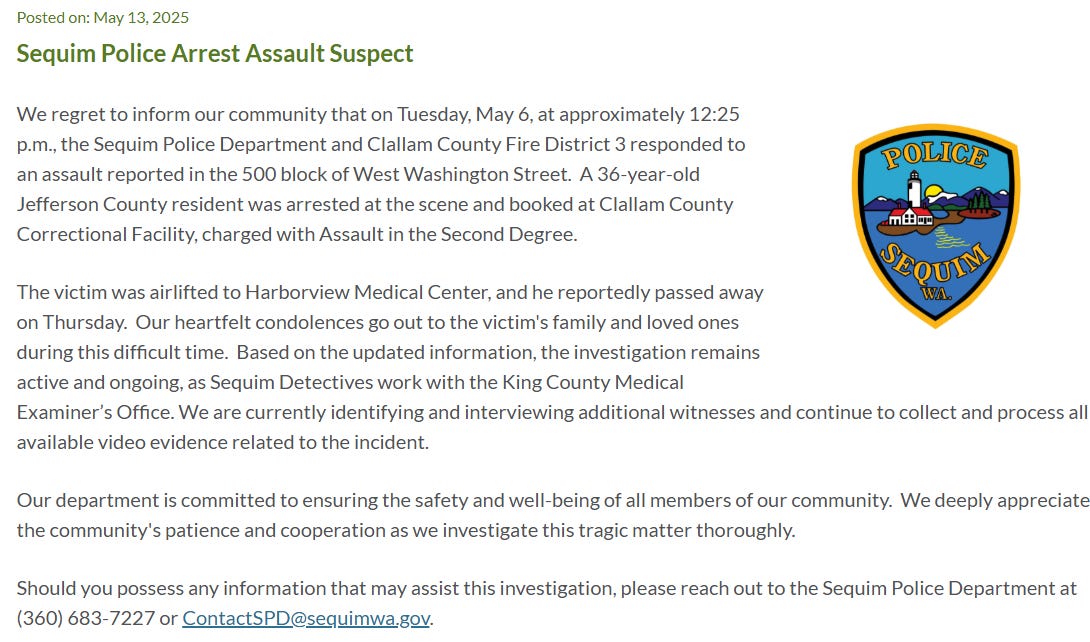A week after the Sequim City Council issued a heartfelt proclamation for Missing and Murdered Indigenous Persons Awareness Day, a local man lay dying from a brutal assault — unnoticed by city leaders and unmentioned by local media. When it comes to public recognition and justice, are all victims treated equally? And what does true equity look like in a community that says it values every life?

On April 28, 2025, the Sequim City Council opened its meeting with a proclamation declaring Missing and Murdered Indigenous Persons (MMIP) Awareness Day. It was a solemn moment. Councilmember Dan Butler, visibly moved, requested a pause. A short silence followed. Councilmembers Rachel Anderson and Harmony Rutter supported the gesture. For 20 seconds, Sequim’s city leaders sat in quiet reflection before promptly moving on — to a proclamation for World Migratory Bird Day.
Just days later, a man was assaulted in broad daylight in the heart of Sequim. He later died from his injuries. His name wasn’t printed for a week. His story didn’t lead any broadcasts. And his death was acknowledged — not by the City Council, not by the mayor, and not by a single local media outlet for a week.
Instead, the public learned of the tragedy through Facebook threads and neighborhood group chats. The man, reportedly recovering from heart surgery and struggling with mobility, was attacked at the Safeway gas station. The alleged perpetrator, with a reported history of violence and drug use, was arrested — and released.
No headlines. No questions. No public mourning.
Finally, a week after the incident, and eight hours after a CC Watchdog article, the Peninsula Daily News published an article online, and the Sequim Police issued a statement seeking “information that may assist this investigation.”
A two-tiered reality
This contrast begs a painful question: In Sequim, do some lives matter more than others?
The MMIP proclamation, though emotionally resonant, was symbolic. It follows a growing local and national trend of recognizing the disproportionate violence experienced by Indigenous communities.

But symbolic proclamations — no matter how well-worded or well-meaning — are only meaningful if backed by consistent principles of equity and action. Equity, after all, means treating every person with equal value and dignity, regardless of background. It demands that we care — and act — when anyone is harmed.
And that’s where the city and the local media failed.
The same officials who participate in blanket-wrapping ceremonies and marches remain silent after the attack and death of an elderly man in Sequim. There was no statement of concern, no moment of silence, no visible expression of outrage. A day before the attack, Port Angeles Mayor Kate Dexter said in an article, “We will continue to stand with our tribal communities, recognizing sovereignty and the importance of our relationships and the value that you bring to our community.”
But does that value extend to others in the same community — when they are not Indigenous, not tribal, and not headline-worthy?
Is it justice when we amplify only some tragedies, while others vanish into obscurity?
Equity requires consistency
According to the U.S. Census Bureau, Native Americans make up approximately 2.9% of Washington’s population, and about 1.1% of the U.S. population overall. In contrast, over 600,000 people go missing in the U.S. every year. While Indigenous people are disproportionately represented among the missing in some areas, the overwhelming majority — statistically — are from other backgrounds.
Where are their proclamations?
Where are their front-page stories?
Where is the city’s moment of silence when they die?
We cannot claim to pursue justice if our compassion depends on the cultural or political resonance of the victim. True equity does not rank tragedies. It acknowledges every loss. It seeks truth for every family.
Last Equitable Wednesday, readers were asked if initiatives to improve voting access should be open to all age groups, not just younger generations. Of 194 votes:
97% said, “Yes, open to all age groups”
3% said, “No, only open to younger is okay”




Equity in today's standards is just another word for racism. I am so disgusted by our so called leaders. Wait, they are not leaders, they are self serving scum...
I think that you laid out the case rather well in this post for anyone who missed it. The mayor is not in control, he has a handler.
https://www.ccwatchdog.com/p/whos-really-running-the-city-of-sequim?utm_source=post-banner&utm_medium=web&utm_campaign=posts-open-in-app&triedRedirect=true